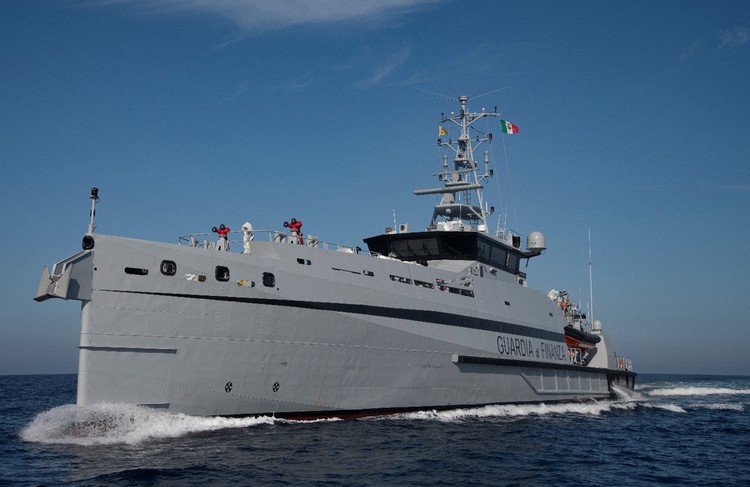News
Greening Award Initiative: Meet the candidates
2024-05-20
Category 1: Greening Operations
_________
Belgium: Remote measurements for SOx and NOx monitoring
Since 2015, more than 10 000 ships have been monitored for sulphur and NOx emissions via a special sensor fitted on the Belgian Coast Guard aircraft by the Royal Belgian Institute of Natural Sciences, with more than 460 violations for sulphur and 115 for NOx being reported. The measurement results provide important insights on real-world ship emission factors and compliance levels at sea, and help, in a very tangible way, to tackle the problem of air emissions along our coasts.

_________
Finland: OPV 2025Under
the OPV 2025 project three older offshore patrol vessels will be replaced by
two new multipurpose vessels, with sustainability as a key pillar of their
design. The new vessels will have, among other features, a battery energy
storage system and will be capable of using shore-side electricity. They will
be based on the OPV Turva, currently in service, but with an even more
optimised powertrain to suit the operational profile and to reduce
environmental impact.
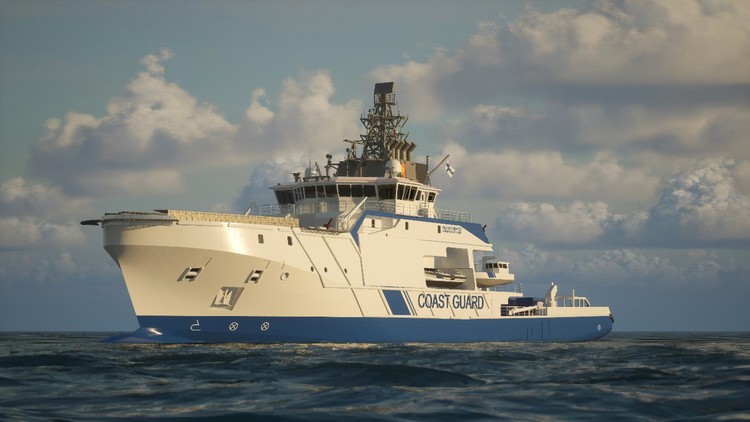
_________
Italy: Remotely Piloted Aircraft Systems: Radon-XFor even more sustainable long-range research activities and lengthy wide-area maritime monitoring, the Guardia di Finanza has recently introduced an RPAS model equipped with multiple electric engines. The Radon X can perform long-range activities with no emissions and very low levels of noise pollution.
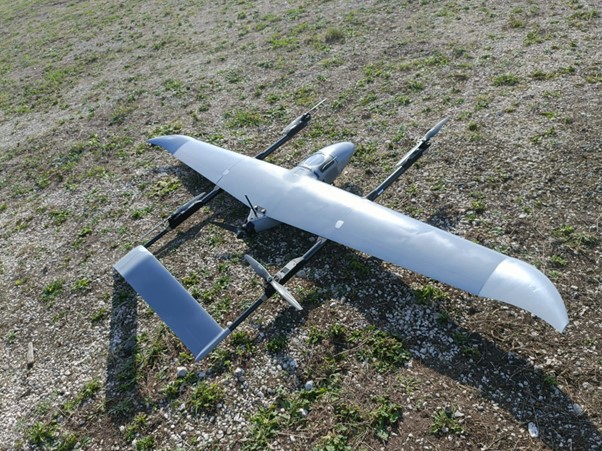
_________
Italy: Simulation Centre for Air-Naval Operations ProjectCurrently the only European infrastructure which is specifically dedicated to training the Police Forces in operations that require the joint use of aircrafts and vessels, the Simulation Centre for Air-Naval Operations also helps the Guardia di Finanza reduce its environmental footprint.
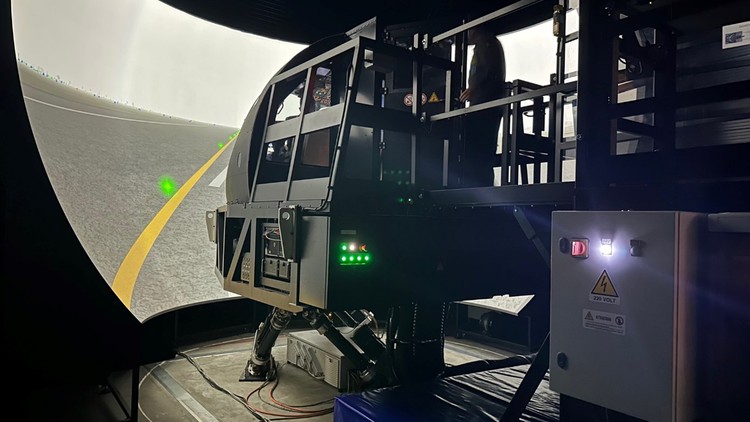
_________
Italy: Hybrid propulsion naval units for VeniceTo ensure the sustainability of their patrolling and surveillance activities in Venice, the Guardia di Finanza have replaced their older patrol vessels with new hybrid propulsion ones. The new vessels are endothermic and electric- powered, and in full electric configuration, emit no fumes or noise. This makes them suitable for use near the protected natural reserve in the Venetian lagoon as well as in the city’s canals.
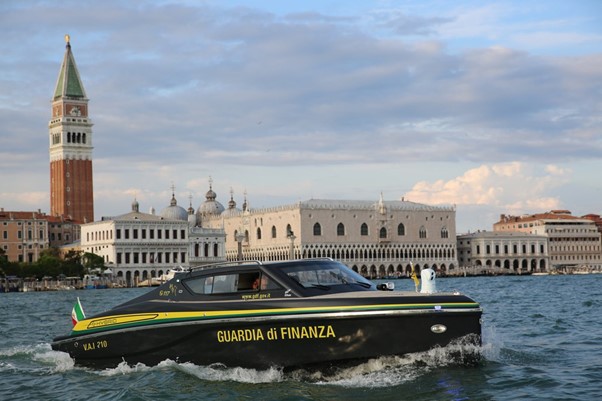
_________
Portugal: Protecting Seagrass MeadowsTwo Portuguese Navy units have joined forces with the environmental NGO Ocean Alive to assist in the preservation of the endangered seagrass meadows in the Troia Peninsula, in Portugal. The Maritime Operational Experimentation Centre (CEOM) and the X31 unit have engaged in a series of actions, including an underwater clean-up, during which nearly 250 kilogrammes of waste were collected from the meadows.
Find out more about the Protecting Seagrass Meadows project:
https://www.facebook.com/ocean.alive.org https://www.facebook.com/MarinhaPortuguesa/
https://www.linkedin.com/company/ocean-alive-org/ https://www.linkedin.com/company/marinha-portuguesa/
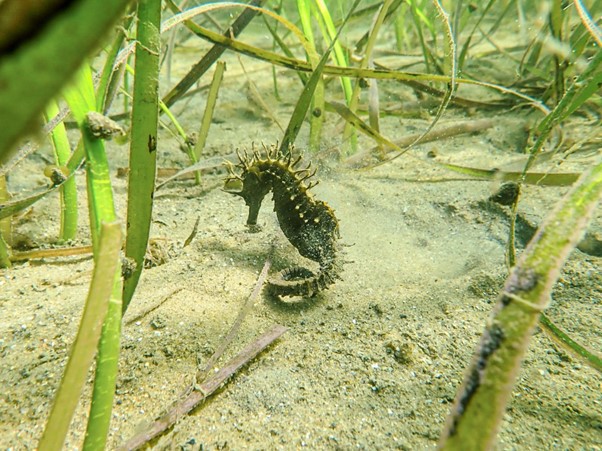
_________
Malta: Grand Harbour Clean Air ProjectThe Grand Harbour Clean Air Project, coordinated by Transport Malta and implemented by Infrastructure Malta, provides shore-to-ship electricity for cruise liners operating within the Port of Valletta. The project is expected to result in a reduction of greenhouse gas emissions and air pollutants emitted by cruise ships at berth, thus improving air quality for approximately 17 000 families living in the Grand Harbour area.
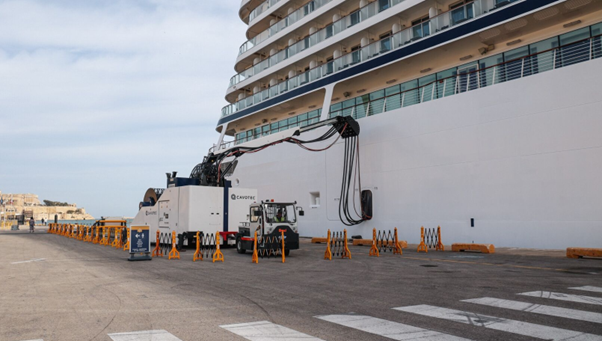
_________
Spain: Short/mid-range system for fisheries inspection & surveillanceSurveillance is a key asset in the fight against illegal, unreported, and unregulated (IUU) fishing, and aerial surveillance is particularly effective. The Spanish Ministry of Agriculture, Fisheries, and Food uses a short-to-medium-range system solar-powered Remotely Piloted Aircraft Systems (RPAS) to provide images and draft reports for its operations. The RPAS’s environmental impact is practically zero, as are its noise levels and carbon footprint.
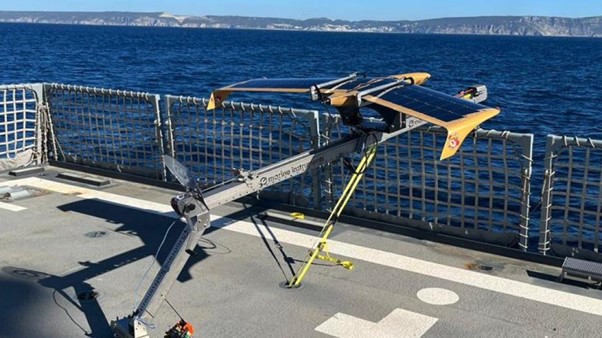
_________
Spain: Patrol boats for fishing inspection & surveillanceInspections and surveillance are key to the fight against IUU fishing, and for this, the Spanish Ministry of Agriculture, Fisheries, and Food can depend on four new patrol vessels, all of which have been constructed to be sustainable. The new vessels are powered by hybrid engines which give improved energy efficiency and produce far fewer emissions when compared with the previous fishing patrol vessels in the fleet.
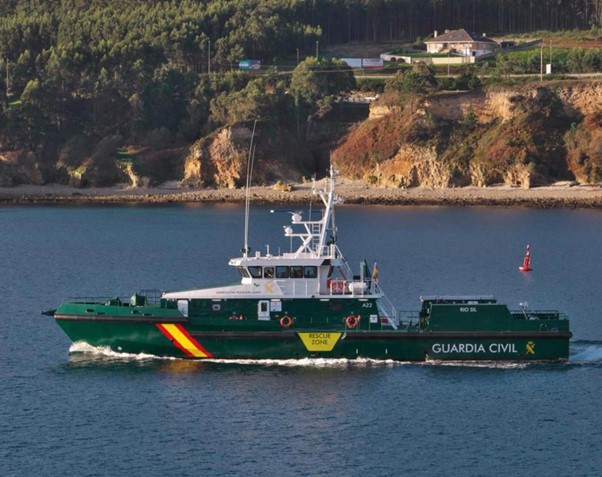
_________
Spain: Heroinas de Salvora ProjectThe Heroinas de Salvora Project, from Salvamento Marítimo, is a multipurpose vessel with a reduced environmental footprint. Named after three young Spanish women who rescued dozens of people from a shipwreck at the beginning of the last century, the Heroinas de Salvora promises a net reduction of 3 000 tonnes of CO2 when compared with the existing fleet. The vessel will enter into full service later in 2024.
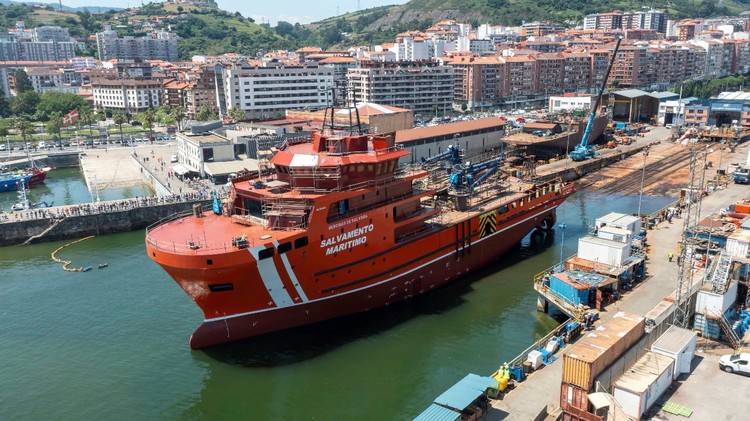
_________
Italy: RPAS in the Mediterranean projectThe Italian Coast Guard expanded their traditional maritime activities of monitoring and surveillance, search and rescue and environmental protection, with EMSA’s RPAS service. They partnered with the Tethys Research Institute to carry out 54 monitoring missions above the Pelagos Sanctuary, providing vital data on these endangered species to scientists and researchers. The RPAS could carefully observe these beautiful creatures from 240 metres above the sea’s surface with its on-board camera, without disturbing or stressing them, even when they were travelling in family groups with young calves.
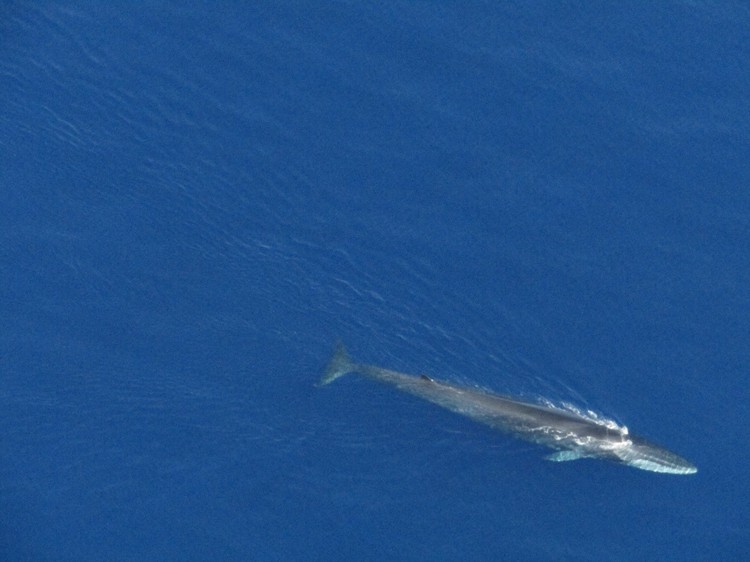
Category 2: Outreach and awareness raising
_________
Denmark: SeawatchersFor
nearly twenty years, the Seawatchers campaign has been a familiar sight on
Danish coastlines. The campaign was started by the Danish Navy in 2006, and
today mobilises 30 000 members every year. Each year Seawatchers collect
approximately 600 tonnes of marine litter from the coastline and beaches around
Denmark, using specially distributed sea waste bags and through organised
clean-up activities.
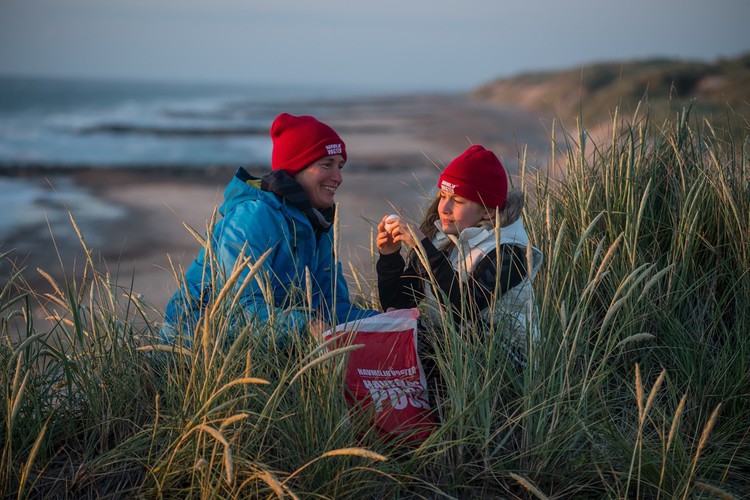
_________
France: Clean Harbour Cherbourg ProjectEvery year, under the coordination of the Préfecture maritime de la Manche et de la mer du Nord, the regional divisions of the French Navy, Maritime Police, Customs, and Maritime Affairs, assisted by Fire Department divers, the regional port authorities, the local harbourmaster’s office, along with the Salmon of France (a local commercial salmon farm), deploy under and over water in the Cherbourg area to collect waste polluting the harbour. On land, local authorities, supported by young people from three local schools, take over to unload, sort and recycle waste at the area provided by the port authority, and by doing so, learn more about the problem of marine litter, and how it can affect the entire underwater ecosystem.
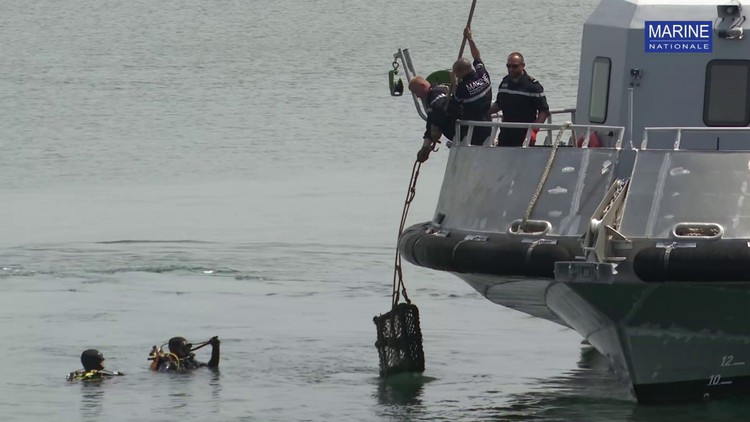
_________
Lithuania: Baltic Sea Animal Rehabilitation CentreThe Baltic Sea Animal Rehabilitation Centre has so far saved the lives of 200 young grey seals. The Centre is part of the Lithuanian Sea Museum, which has been rehabilitating marine animals since 1987. The Sea Museum acts as a contact point for members of the public to report seal sightings. Once a sick or malnourished young seal is identified and its location given, expert staff rush to the scene to rescue the helpless pup and take it to the centre for specialist care.
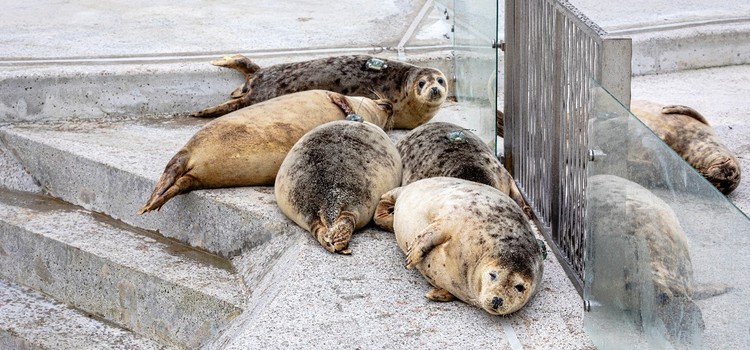
_________
Sweden: Greening the Blue - Promoting sustainable practices in Coast Guard functionsThrough its chairmanship of the North Atlantic Coast Guard Forum, the Swedish Coast Guard is promoting an ambitious agenda of knowledge and awareness raising on sustainability issues for all participants. Throughout 2024, the Swedish Coast Guard are organising two meetings to promote sustainable practices to 160 high level and key members of different North Atlantic Coast Guard bodies and organisations.
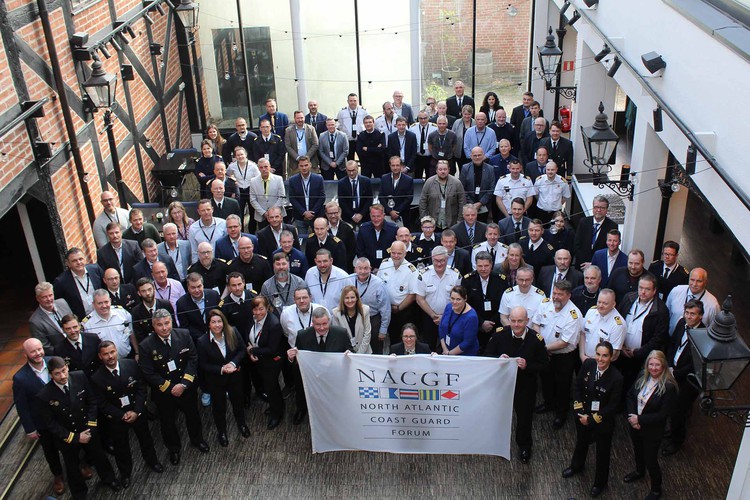
Category 3: Greening at work
_________
Belgium: Working Together Towards a Greener Europe ProjectThe
Flemish Agency for Maritime and Coastal Services (MDK) is implementing an
ambitious set of sustainability projects across the entire range of its actions
and activities. The projects are based on the greening of the physical
environment, greening of vessels under its management, the greening of its
vehicle fleet, and striving for a green and resilient environment. The
sustainability ambition is inclusive; all MDK employees have been heavily
involved in designing the policies and projects, working to shape and support
the plans.
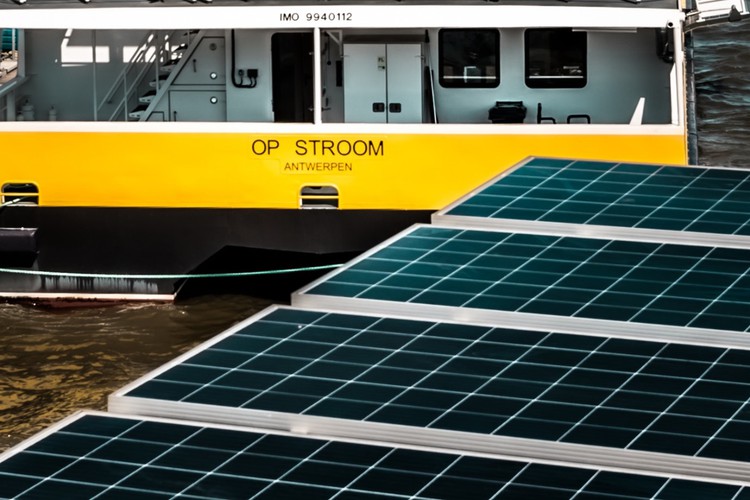
_________
Italy: Guardia di Finanza best practices guideTo encourage "sustainable thinking," the "Green Guardia di Finanza" concept has been developed and disseminated via an electronic best practice guide. The guide sets out the current and future measures being implemented to meet demanding sustainability targets, ensuring that everyone in the organisation feels informed and included in the environmental actions, and can actively contribute to them. It also sets out actions that can be carried out at individual level, to fully promote a sustainable culture within the Guardia di Finanza.
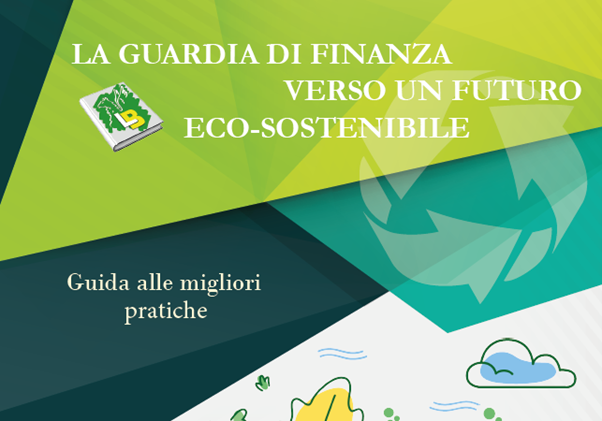
_________
Italy: Naval fleet green update projectUnder the naval fleet green update project, a finalist entry in the Greening Award Initiative from the Guardia di Finanza, the Naval Office has undertaken a range of actions to make its fleet more sustainable. Obsolete neon bulbs on board the vessels in the fleet have been replaced with new LED lights, water economiser kits have been installed on board, and the vessels have been treated with biocide-free paints, among other initiatives.
